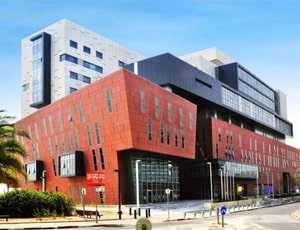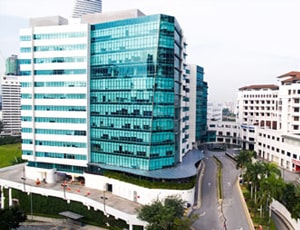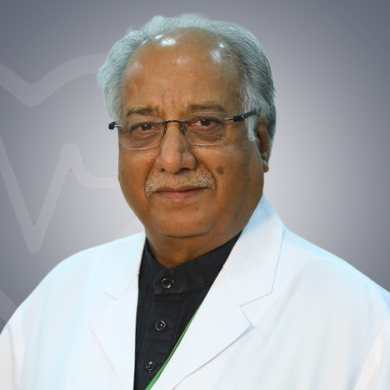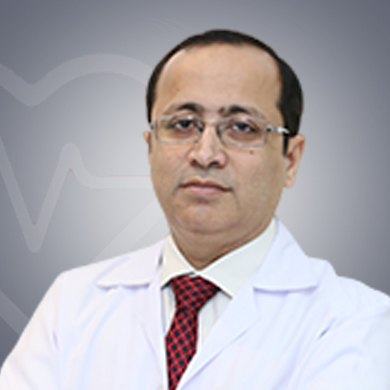The enlarged prostate gland can become a concern for men after a certain age, leading to difficulties with urination. This issue often prompts medical professionals to recommend transurethral resection of the prostate (TURP) surgery.
The prostate gland undergoes two phases of growth as men age. The initial growth phase occurs during puberty when the gland doubles in size. The second phase of growth typically occurs after the age of 25, reaching its final size, which generally remains constant throughout life. However, in cases of benign prostatic hyperplasia, the prostate gland may further enlarge.
As the gland enlarges, it compresses the urethra, causing the bladder wall to thicken. Over time, the bladder weakens, resulting in incomplete urine emptying and allowing urine to remain in the bladder. Additionally, the narrowing of the urethra exacerbates urinary difficulties, leading to recurring issues with urination.
As of now, it is not totally clear why most men develop BPH but it mainly indicates an imbalance of hormones and sexual activities with advanced age. Apart from that, there can be urinary tract infection, narrowing of the urethra known as urethral stricture, inflammation of the prostate, bladder or stones in the kidney, nerve problems in controlling the bladder, or scarring in the neck of the bladder as a result of previous surgery.
The following are some of the symptoms of BPH:
Some of these above symptoms can occur even in men whose prostate has not enlarged significantly.
Patients are required to stay in the hospital for at least one to two days after the procedure. Patients who undergo TURP are required to have a catheter in place for urine drainage for at least a few days. The catheter is removed when the swelling reduces and the patient is in a position to urinate by himself.
It is normal to experience blood in the urine right after the surgery, pain at the time of urination, and frequent urination after the surgery. However, you must contact the doctor in case you are unable to urinate at all, develop fever, or notice the presence of clots in the urine.
After the surgery, you are required to:

Tel Aviv, Israel
Assuta Medical Center is a leading private hospital in the capital city of Tel Aviv in Israel. Assut...more
![]() Accommodation
Accommodation
![]() Airport Transfer
Airport Transfer
![]() Choice of Meals
Choice of Meals
![]() Interpreter
Interpreter

Kuala Lumpur, Malaysia
History Parkway Pantai Hospital in Kuala Lumpur, Malaysia is operating under the Parkway Pantai gro...more
![]() Accommodation
Accommodation
![]() Airport Transfer
Airport Transfer
![]() Choice of Meals
Choice of Meals
![]() Interpreter
Interpreter

Delhi, India
Equipped with more than 50 specialty institutes, Indraprastha Apollo was started with the vision of ...more
![]() Private Rooms
Private Rooms
![]() Translator
Translator
![]() Nursery / Nanny Services
Nursery / Nanny Services
![]() Airport Pick up
Airport Pick up

Urologist & Robotic Surgeon
Delhi, India
45 Years of experience
USD 28 for video consultation

Kidney Transplant Surgeon
Delhi, India
of experience
USD 40 for video consultation

Urosurgeon
Delhi, India
18 Years of experience
USD 32 for video consultation

Urosurgeon
Delhi, India
32 Years of experience
USD 32 for video consultation
Q: What is the cost of TURP?
A: TURP operation cost differs from patient to patient. Additionally, it depends on the country where you are planning to undergo the surgery.
Q: What is the duration of the surgery?
A: The surgery time ranges from 45 to 60 minutes.
Q: What are the side effects of TURP?
A: Impotency, problems in urination, and bladder control problems are some of the side effects of TURP.
Q: Can a prostate grow back after TURP?
A: In some patients, the prostate gland can grow back after the surgery. Therefore, the problems that the patient had at the time of BPH diagnosis may return.
Q: How safe is TURP surgery?
A: TURP is a generally safe procedure. However, like any other surgery, there are a few risks associated with the procedure.